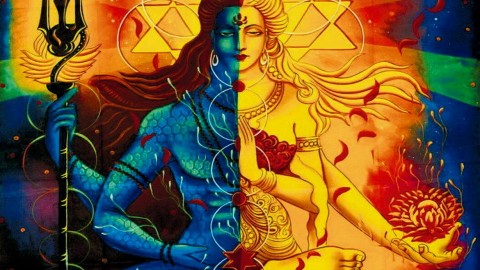Accept Yourself – In Gita Verse 4.13 According to the three modes of material nature and the work associated with them, the four divisions of human society are created by Me. And although I am the creator of this system, you should know that I am yet the non-doer, being unchangeable.
In the Bhagavad Gita, Verse 4.13, Krishna articulates a profound concept about the structure of human society. He explains that the four varnas – Brahmins, Kshatriyas, Vaishyas, and Shudras – are created by Him based on inherent qualities and actions. Yet, intriguingly, He also describes Himself as the non-doer, unchangeable and detached from the system He has established. This duality is a complex idea that requires careful exploration.
The notion of varnas has often been misinterpreted and misused throughout history, leading to numerous social injustices. The caste system, as it evolved, became a source of division and discrimination, far removed from its original intent. Krishna’s words have been twisted, and the true essence of the varna system has been lost amidst societal decay. The degradation associated with the caste system is not a reflection of Krishna’s teachings but rather a distortion by humanity. The original intent was to recognise and respect the natural differences in human qualities and actions.
Krishna’s reference to guna (qualities) and karma (actions) is crucial here. Guna refers to the inherent traits within an individual, which are as natural and varied as the colours of a rainbow. These qualities cannot be standardised or equalised, no matter how much we strive for a homogeneous society. Even in the most egalitarian systems, individual differences in qualities persist. These differences are not external but intrinsic, embedded in the very soul of a person. They are inherited, a blend of the genetic and spiritual legacy passed down through generations.
The concept of guna and karma is deeply personal, relating to the individuality and uniqueness of each person. It is not about societal hierarchy but about understanding one’s innate nature. Each person is born with specific qualities, and these qualities are expressed through actions. The qualities are not manufactured; they are inherent, tied to our very existence. Scientific advances may one day predict a person’s potential from their genetic makeup, but these qualities are already present from the moment of conception.
Krishna categorises these differences into four broad divisions, which are not arbitrary but natural. Throughout history, various cultures have recognised similar divisions, often arriving at the number four. These categories are not about superiority or inferiority but about recognising the diversity of human nature. Each category has its own role and purpose, contributing to the harmony and balance of society.
The Brahmins, for example, are driven by a quest for knowledge. Their lives are dedicated to understanding and wisdom, much like scientists and philosophers. This pursuit is not about material gain but about fulfilling an inner calling. The Kshatriyas, on the other hand, are oriented towards power and leadership. Their qualities drive them to protect and govern, ensuring stability and order.
Vaishyas are inclined towards commerce and wealth creation, essential for the prosperity and economic health of society. Shudras, with their focus on labour, are the backbone of the community, providing the necessary support and sustenance. Each varna has its own significance, and all are interdependent, forming a cohesive whole.
Krishna’s message is that these divisions are not about ranking but about recognising and honouring the natural order. The problems arise when society imposes artificial hierarchies, creating divisions and conflicts where none should exist. True harmony is achieved when individuals align their actions with their inherent qualities, fulfilling their true potential.
Krishna’s role as the non-doer is equally significant. He creates, yet remains detached, embodying the principle of non-action amidst action. This concept of non-doership is about responding to life without attachment or desire. It is about being present, embracing your true nature, and choosing to Accept Yourself. This acceptance leads to inner peace and fulfilment, as there is no conflict between who we are and what we do.
In embracing this philosophy, we learn to act with wisdom and compassion, responding to life’s challenges without being driven by ego or desire. This is the essence of non-doership – acting from a place of inner harmony and connection with the greater whole. It is about being true to oneself and recognising the divine within, allowing us to live with grace and purpose.
Krishna’s teachings encourage us to find this balance, to act in alignment with our true selves, and to contribute to the world in meaningful ways. By understanding and living by these principles, we can transcend the divisions and conflicts that plague society, creating a world where each individual’s unique qualities are valued and celebrated.
Tags: Accept Yourself





